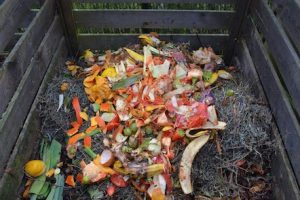Mitchell Center to Convene Working Group on Legislative Act to Address Hunger

Food waste presents a significant sustainability challenge across the United States (40 percent of all food produced in the U.S. is wasted), but particularly in Maine where many are food insecure (In 2016 more than 200,000 Mainers were food insecure, including 60,000 children).
Working to prevent food waste provides opportunities to address multiple sustainability challenges (e.g. hunger, energy and water conservation, reduced need for landfills). Key stakeholders are mobilizing around this problem and potential solutions, but there are still significant gaps in our understanding of the problem as well as the costs and benefits of proposed solutions.
In the spring of 2017, the Maine State Legislature’s Environment and Natural Resources (ENR) Committee considered legislation titled, “An Act to Address Hunger, Support Maine Farms and Reduce Waste”—LD 1534—and voted unanimously to carry the act over into the second regular session of the 128th Legislature.
The Committee requested that the Mitchell Center for Sustainability Solutions convene a stakeholder working group to provide feedback and guidance on the proposals included within LD 1534, as well as other opportunities to reduce food waste in Maine. The working group will meet at the University of Maine in Orono on Monday, August 7th. Participants will be asked to help: collect data in order to outline Maine’s food waste landscape; and evaluate policies to reduce food waste, with particular emphasis on their feasibility in Maine.
Per the Committee’s request, the working group is to consist of a balanced representation of municipal officials, farmers and food producers, grocers and restauranteurs, environmental organizations, food recovery and nonprofit hunger relief organizations, composters and anaerobic digesters, and schools. Participation by Maine Department of Environmental Protection staff was also requested.
At the meeting, stakeholders will be asked to contribute ideas, questions, and concerns in this process, and will spend additional time outside of the workshop collecting information, reporting to the group, participating in conference calls and helping to review the final report for the ENR Committee.
For more information on this process, contact assistant professor of anthropology Cindy Isenhour, cynthia.isenhour@maine.edu.
